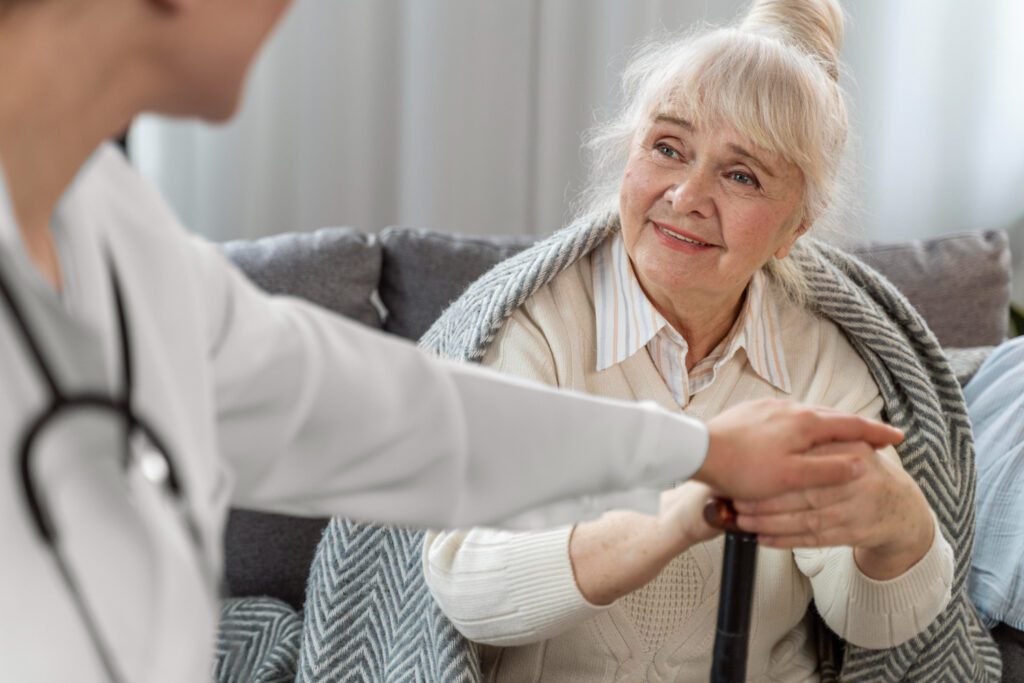
Growing old should be a time of peace, even comfort. Sad to say, for some older adults in care homes, this can turn into a nightmare of abuse and trauma. When your loved ones suffer damage through places that were supposed to be keeping them safe, this action is heartbreaking and even infuriating.
This post takes a glance at ways of helping older adults who have gone through abuse in care homes. We will discuss identifying signs of trauma, where to seek assistance and ways to help heal.
Table of Contents
- 1 Elder Abuse in Care Homes
- 2 Recognizing the Symptoms of Trauma
- 3 Getting Help and Support
- 4 Supporting Healing and Recovery
- 5 Listen and believe them
- 6 Respect their decisions
- 7 Make them feel safe
- 8 Encourage professional help
- 9 Be patient!
- 10 Rebuilding Trust and Confidence
- 11 A Culture of Safety
- 12 Healing is Possible!
Elder Abuse in Care Homes
Abuse in care homes can take all sorts of forms. Sometimes, it’s physical, where residents get hit or roughly handled. Sometimes it’s emotional. People get yelled at or insulted.
Sometimes, it’s actual sexual abuse, which is particularly horrific. There’s also just plain neglect – needs aren’t met. Financial abuse is widespread as well. Money or valuables are stolen.
Any of these can leave deep physical and emotional scars. Survivors might feel scared, sad, angry, or ashamed and might have trouble sleeping, lose their appetite, or not want to talk to anyone. Some might seem confused or forgetful. All of this is a normal reaction to trauma.
Recognizing the Symptoms of Trauma
If your loved one is in a care home, there are ways of identifying abuse or trauma on each visit. A few things to look for include unexplained bruises, cuts, or any other injuries, sudden mood swings or behavioral change, withdrawing from activities they enjoyed, being too quiet or being frightened of staff, not wanting to be touched or flinching when approached, appearing depressed, anxious, or angry without an apparent reason, among others. If you notice these signs, do not ignore them. Trust your instincts if something feels off or wrong.
Getting Help and Support
If you suspect abuse, the first thing you can do is report it. You could speak to the care home management and report it to your area’s adult protective services. In cases of severe abuse or neglect, you may need to call the police.
Some groups help elder abuse survivors. Your local Area Agency on Aging can point you to resources. Some cities have special elder abuse teams that can help. In cases of sexual abuse, rape crisis centers often have services for older survivors too.
For worse actions, you may consult a lawyer whose practice area includes elder abuse, sometimes known as a nursing home abuse lawyer. In the case of sexual abuse, you should talk to a nursing home rape lawyer. These lawyers can help fight for damages and justice.
Supporting Healing and Recovery
Healing from abuse takes time and support. Below are ways to help an older adult who has been through trauma:
Listen and believe them
Many survivors fear their accounts will not be accepted as valid. Listen without judgment and let them know you believe them.
Respect their decisions
What abuse does, first of all, is take control of a person. Give it back to them by letting the survivor decide what they want to do afterward; don’t argue with them.
Make them feel safe
This could be moving to a different care home or having family members visit them more often. Ask what they would like that would make them feel safer.
Encourage professional help
A therapist or counselor who knows about elder abuse can be of great assistance. Offer to help find one or go with them to appointments.
Be patient!
Improvement is not a straight line. There will be good days and bad ones. Continue showing up and being supportive of your loved one.
Rebuilding Trust and Confidence
Abuse can rattle a person’s trust in others and maybe even in themselves. Here are some things that can help build this back up:
- Keep your promises: If you promise to visit or phone them, do so. Consistency helps regain lost trust.
- Encourage independence: Assist the survivor in accomplishing things independently when possible. This may help rebuild confidence.
- Celebrate small wins: Notice and praise small steps forward. This could include joining an activity or speaking for themselves.
- Connect with others: Join support groups for elder abuse survivors to find healing around others who understand.
- Find ways to give back: Some survivors find that helping others gives them purpose. This could be volunteering or mentoring other survivors.
A Culture of Safety
While we worry about assisting the individual survivor, we must work toward preventing abuse from happening in the first place. We can do this majorly by promoting improved monitoring of care homes.
Other ways to help deliver safer care homes include advocating for better staffing ratios in care homes, supporting laws that increase penalties for elder abuse, encouraging care homes to put clear policies on abuse in place and enforce them, promoting programs that teach respect for older adults, and forming support groups that combat elder abuse
Healing is Possible!
Every older adult deserves to be treated with dignity and respect. While the hurt of elder abuse goes very deep, healing is possible. With sufficient support, older adults can regain a sense of their safety, trust, and enjoyment of life.
It takes time, patience, and usually some kind of professional help. There are places to go for help for such abuse; you can seek out local elder abuse resources and speak to nursing home abuse lawyers if this is what you have to do. Remember, every single step in the healing process is a triumph over abuse.
